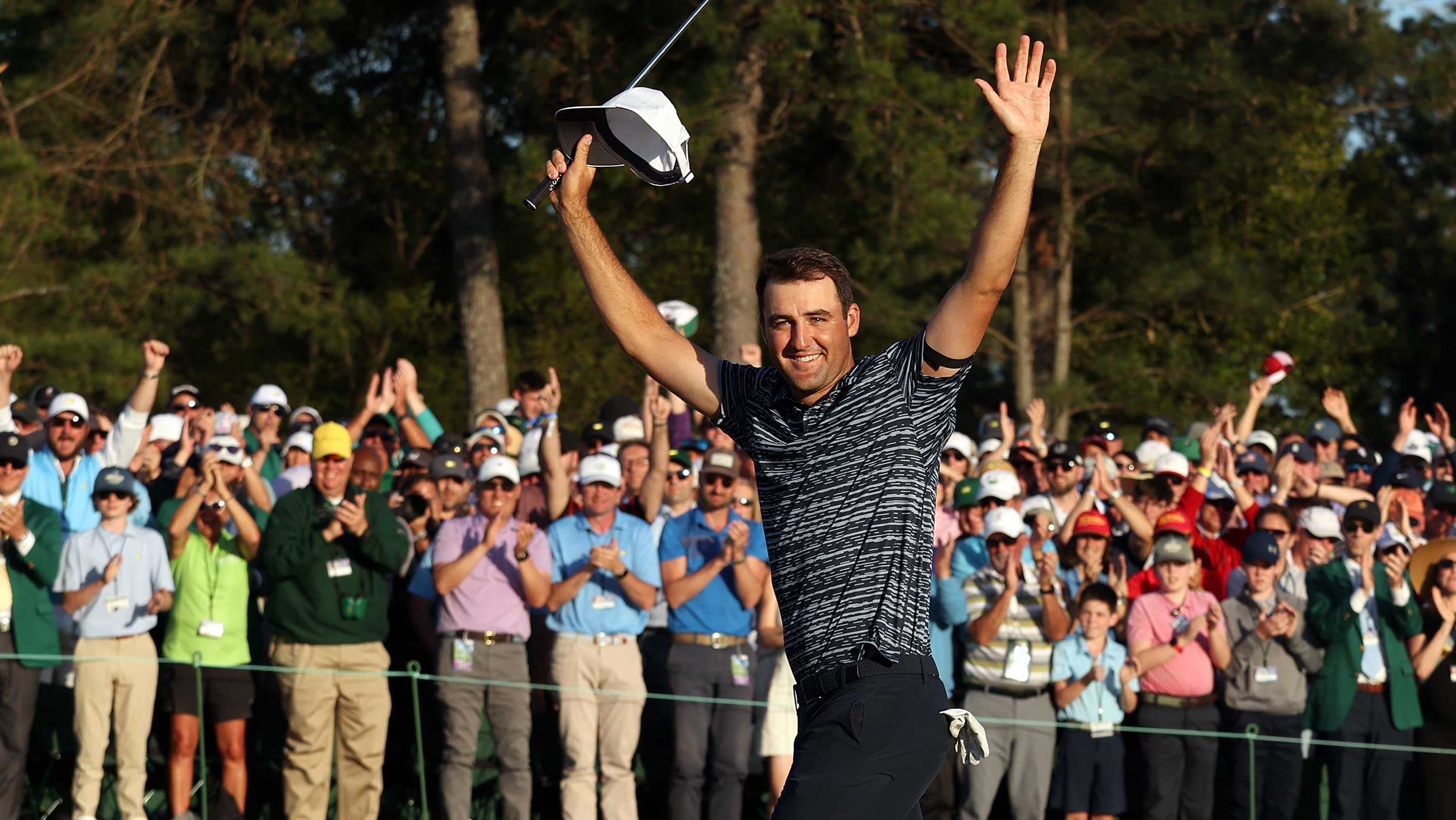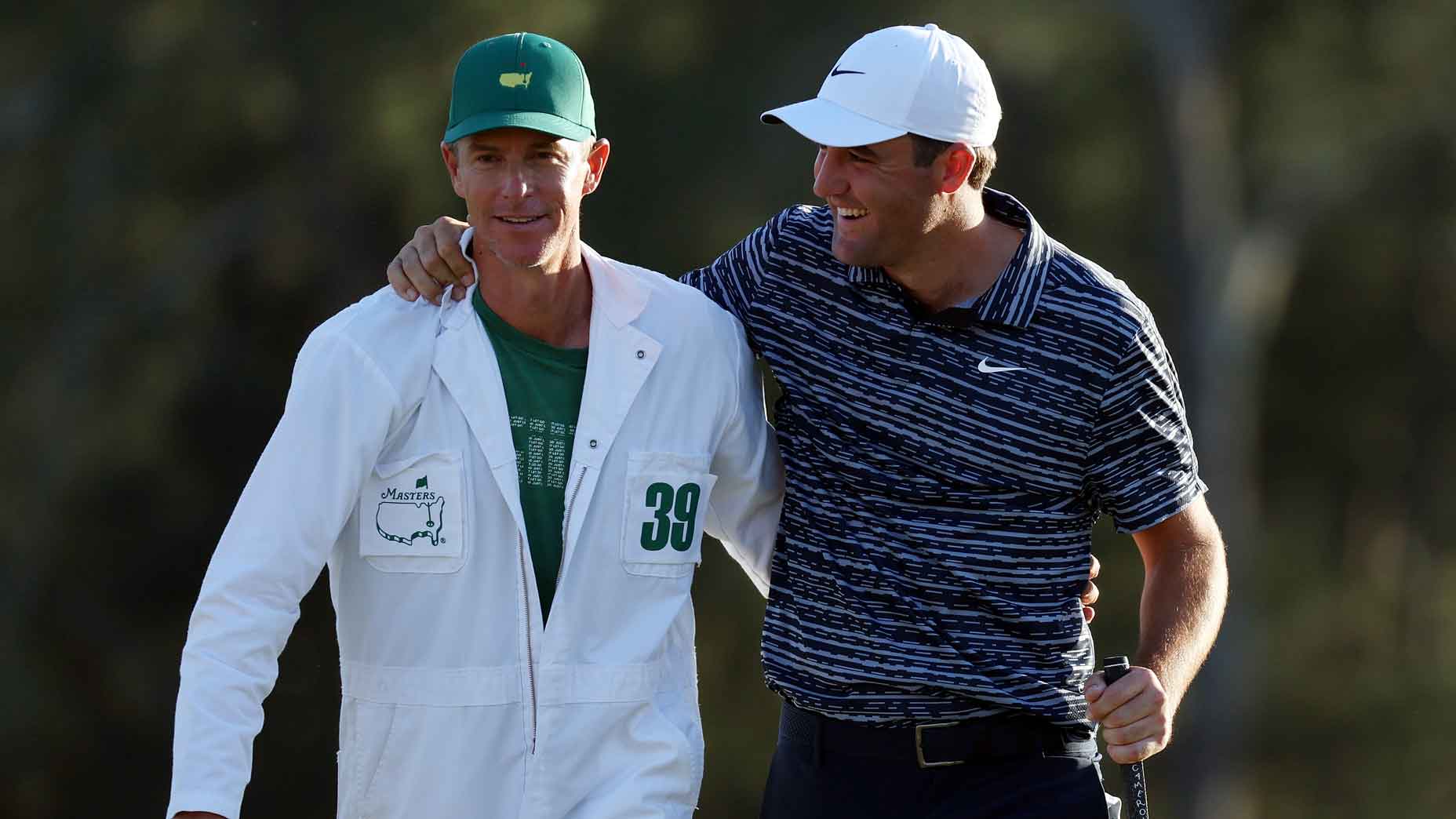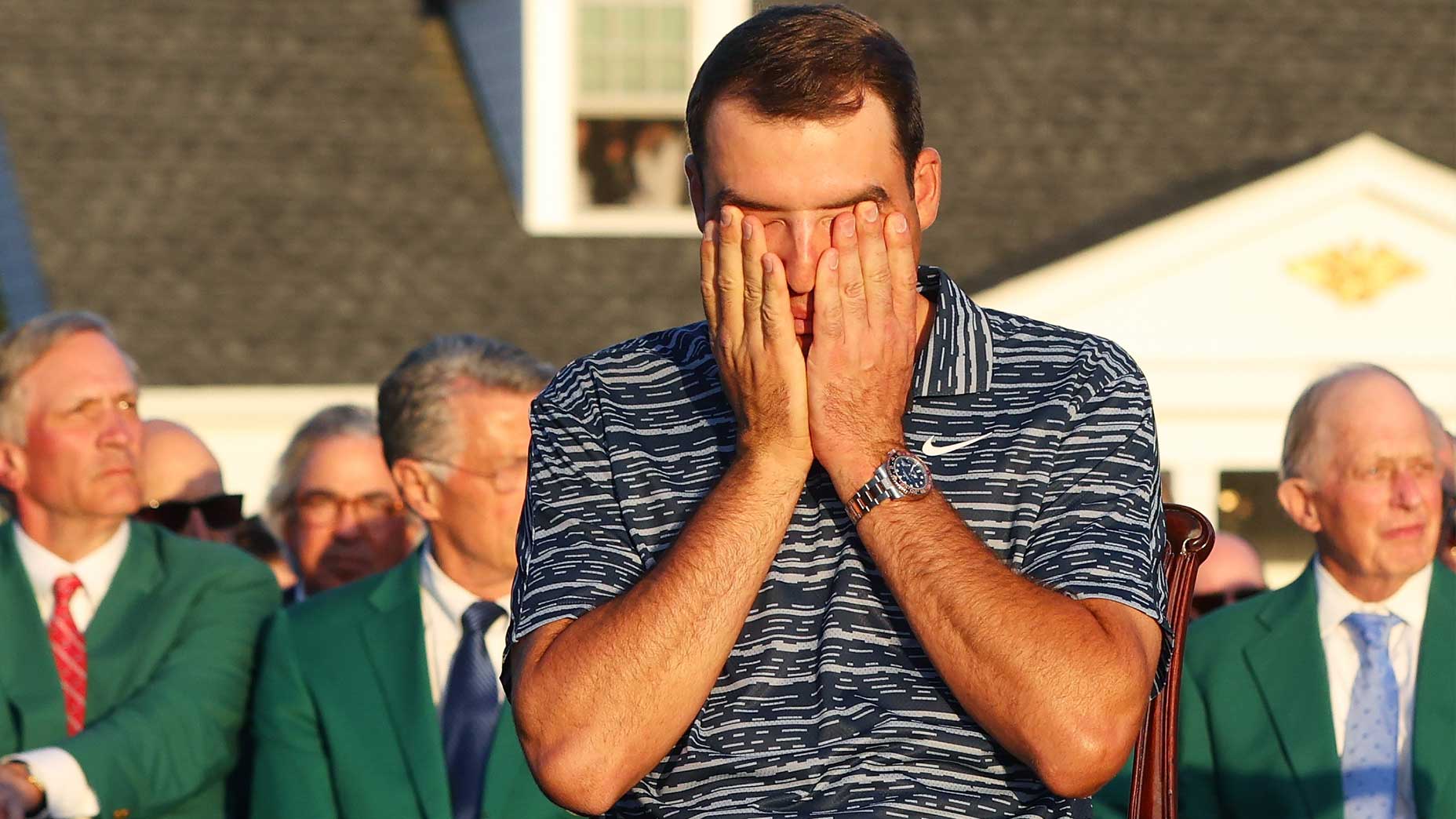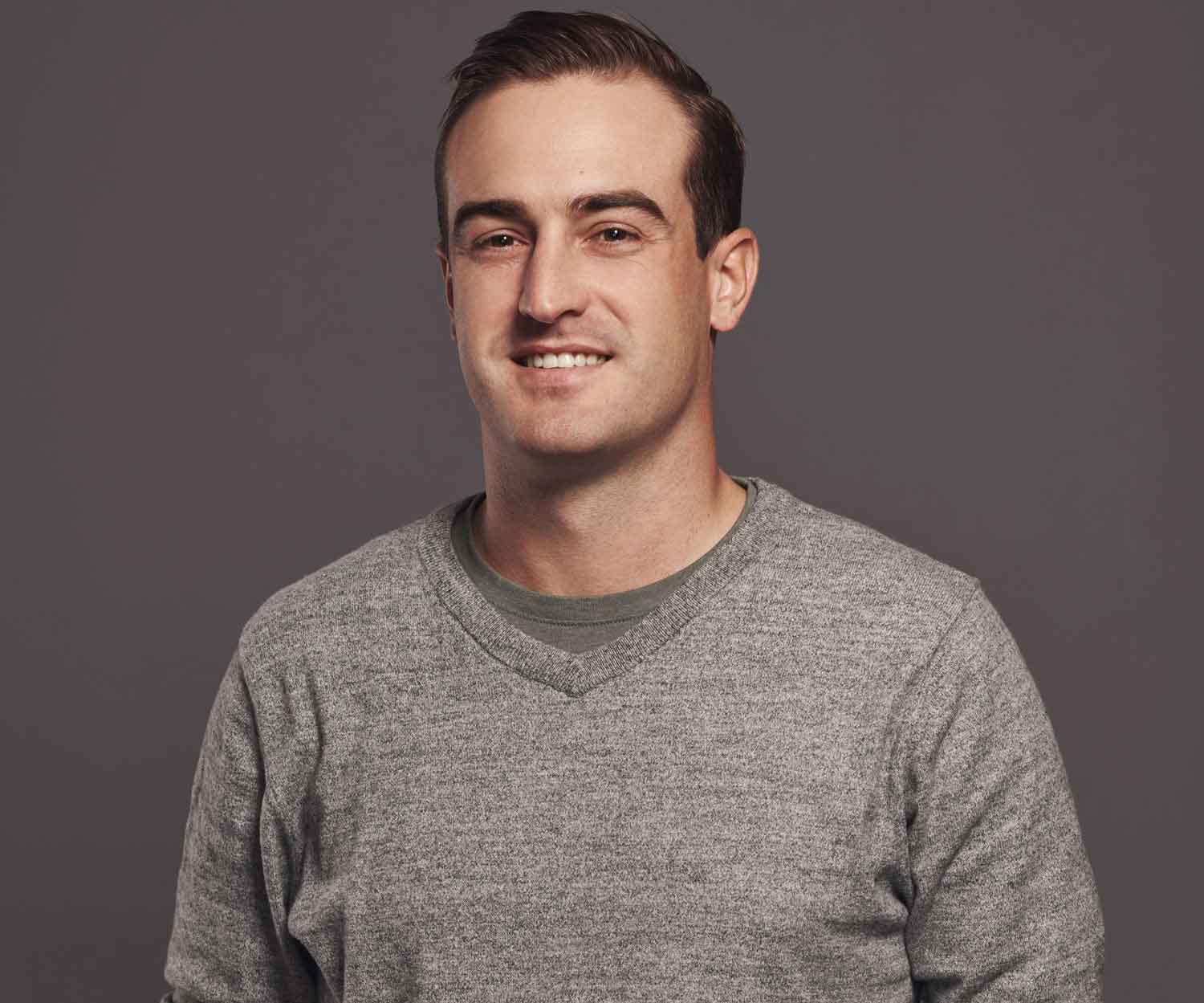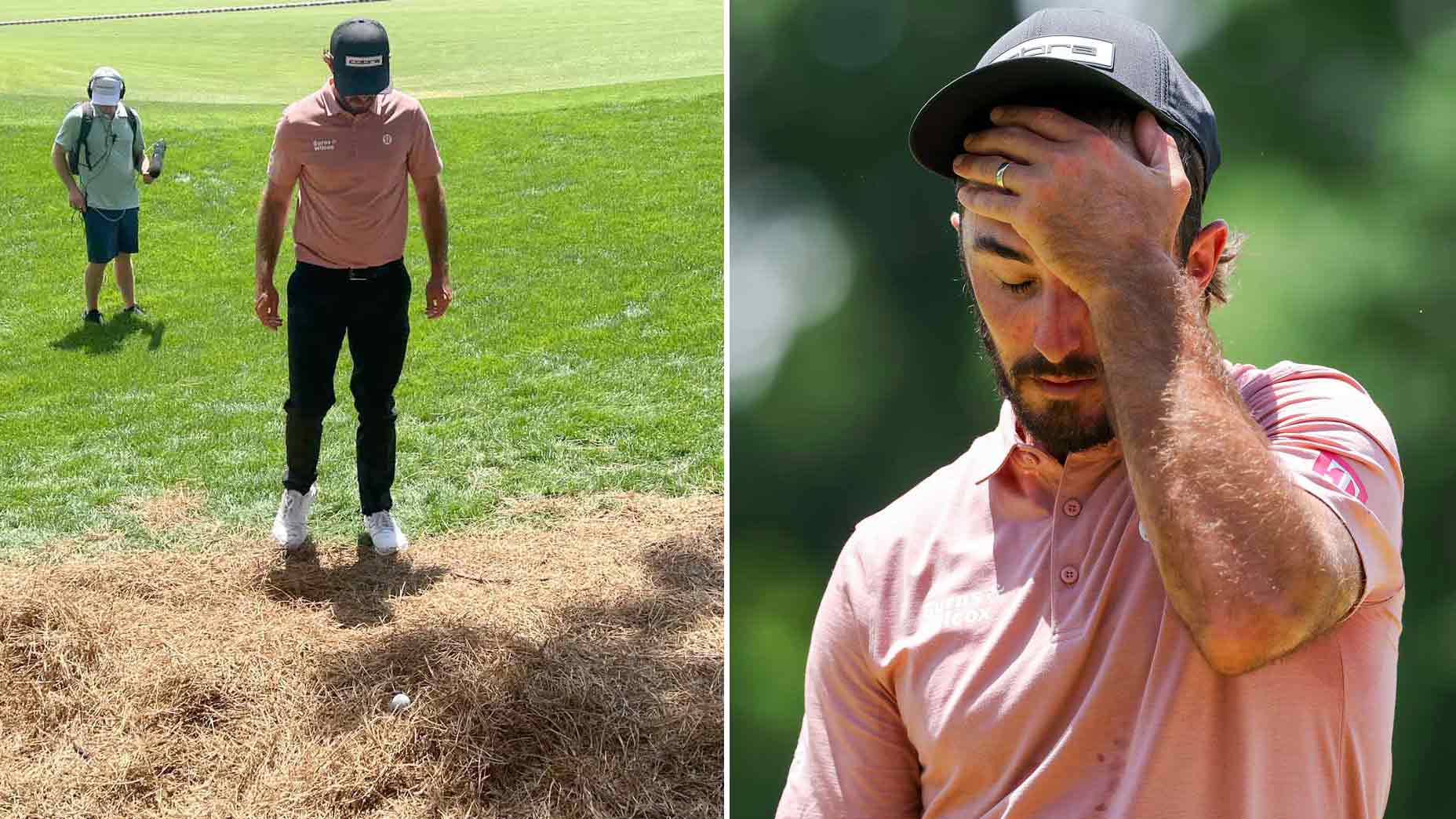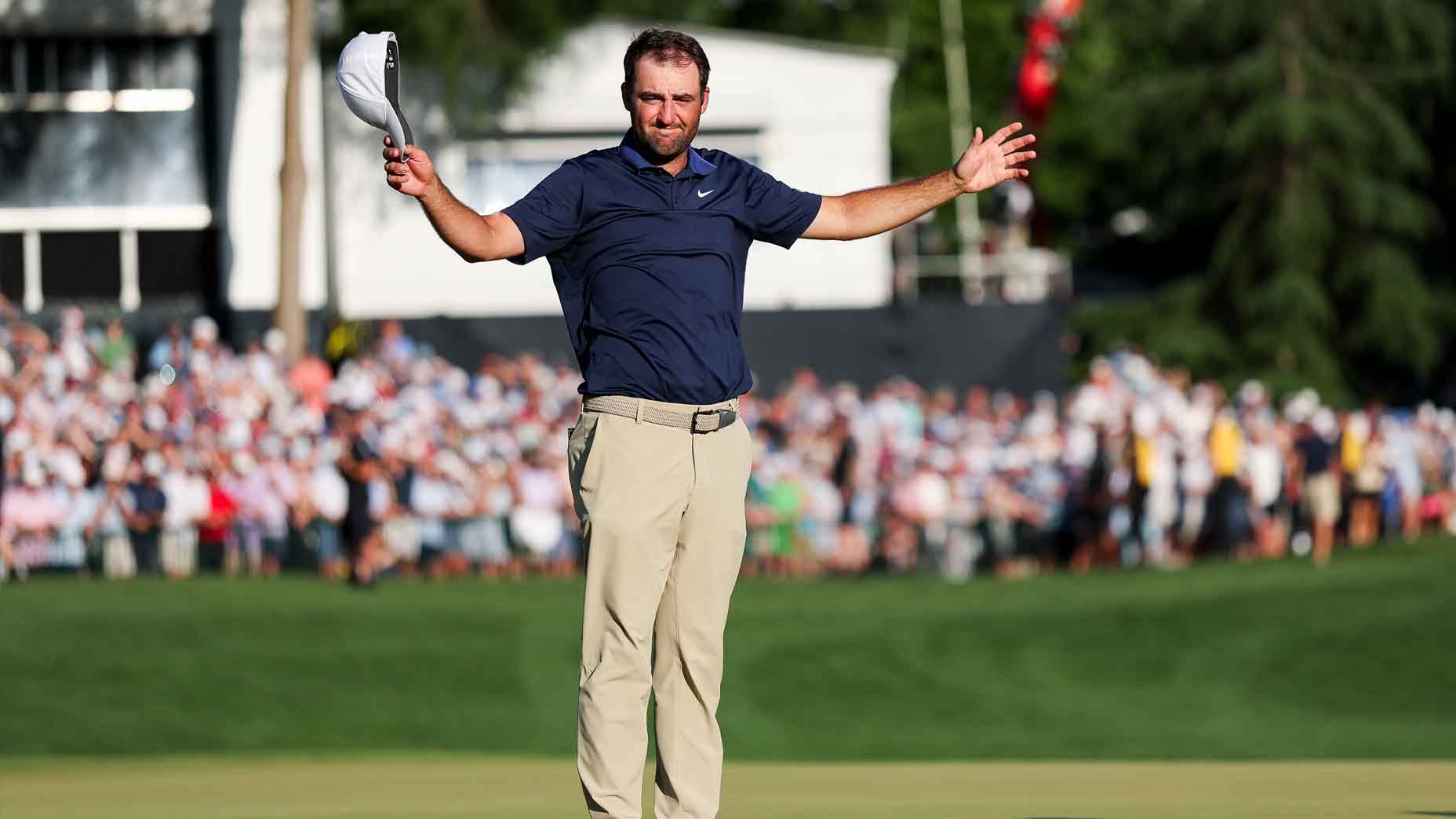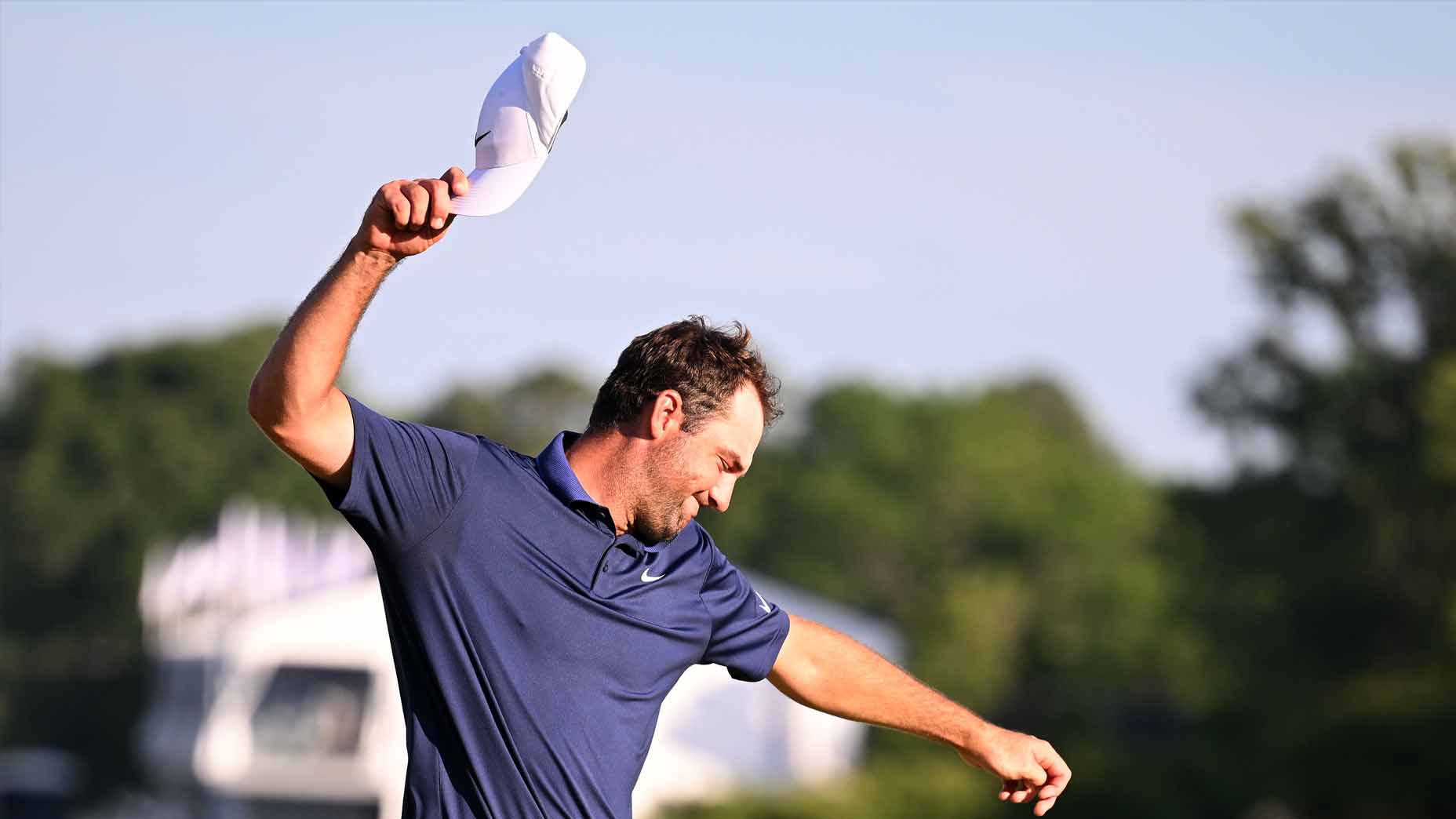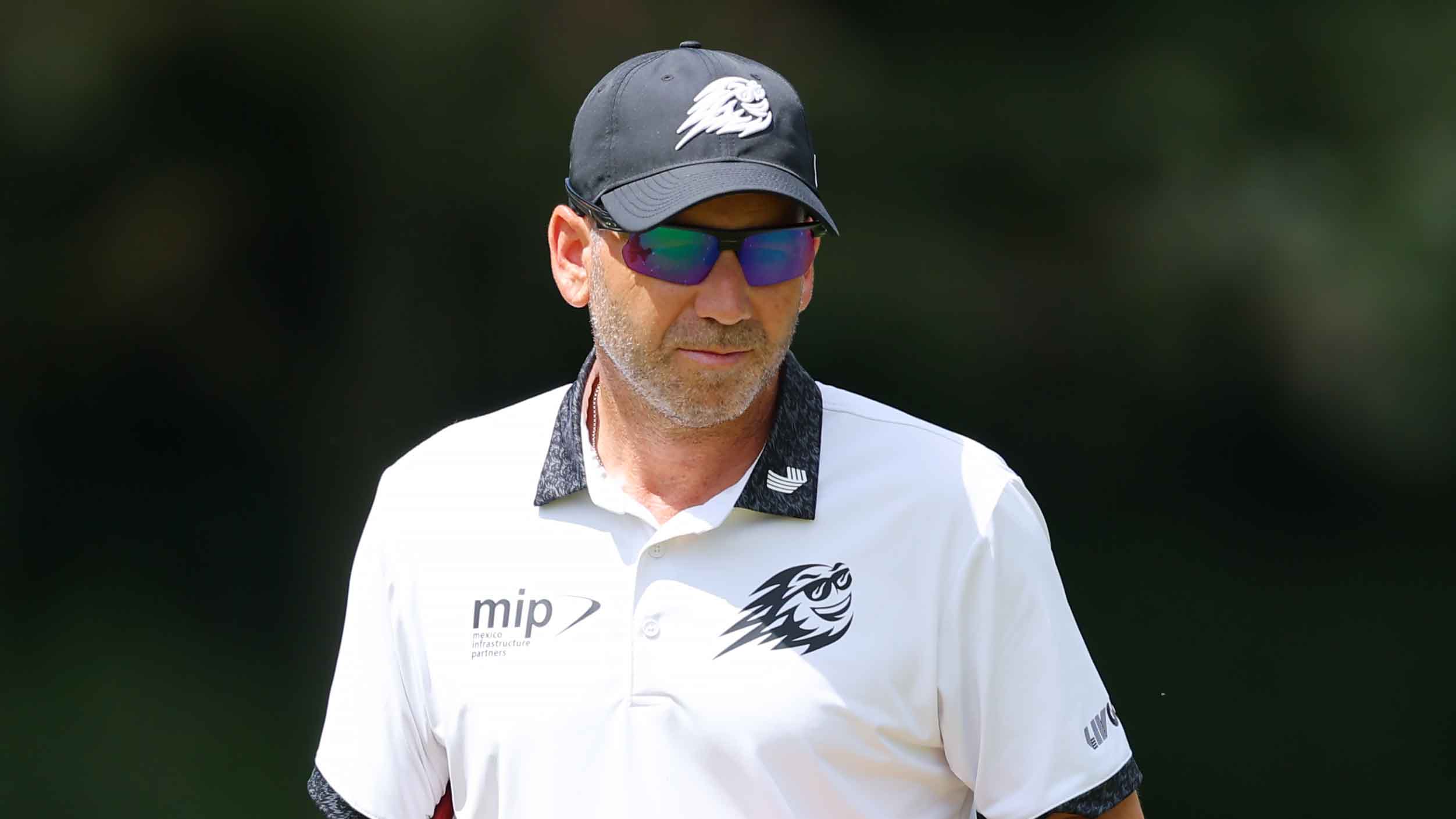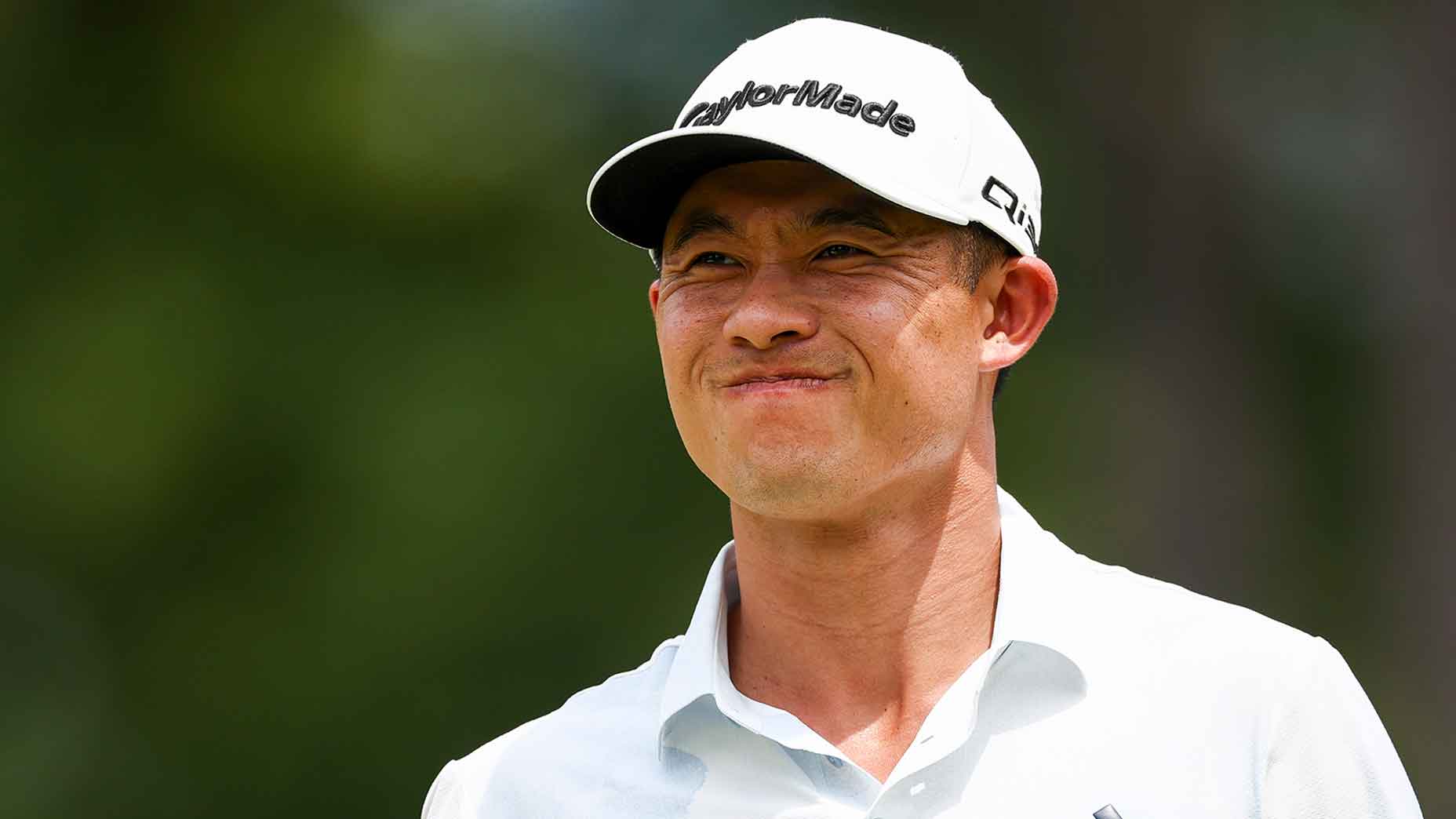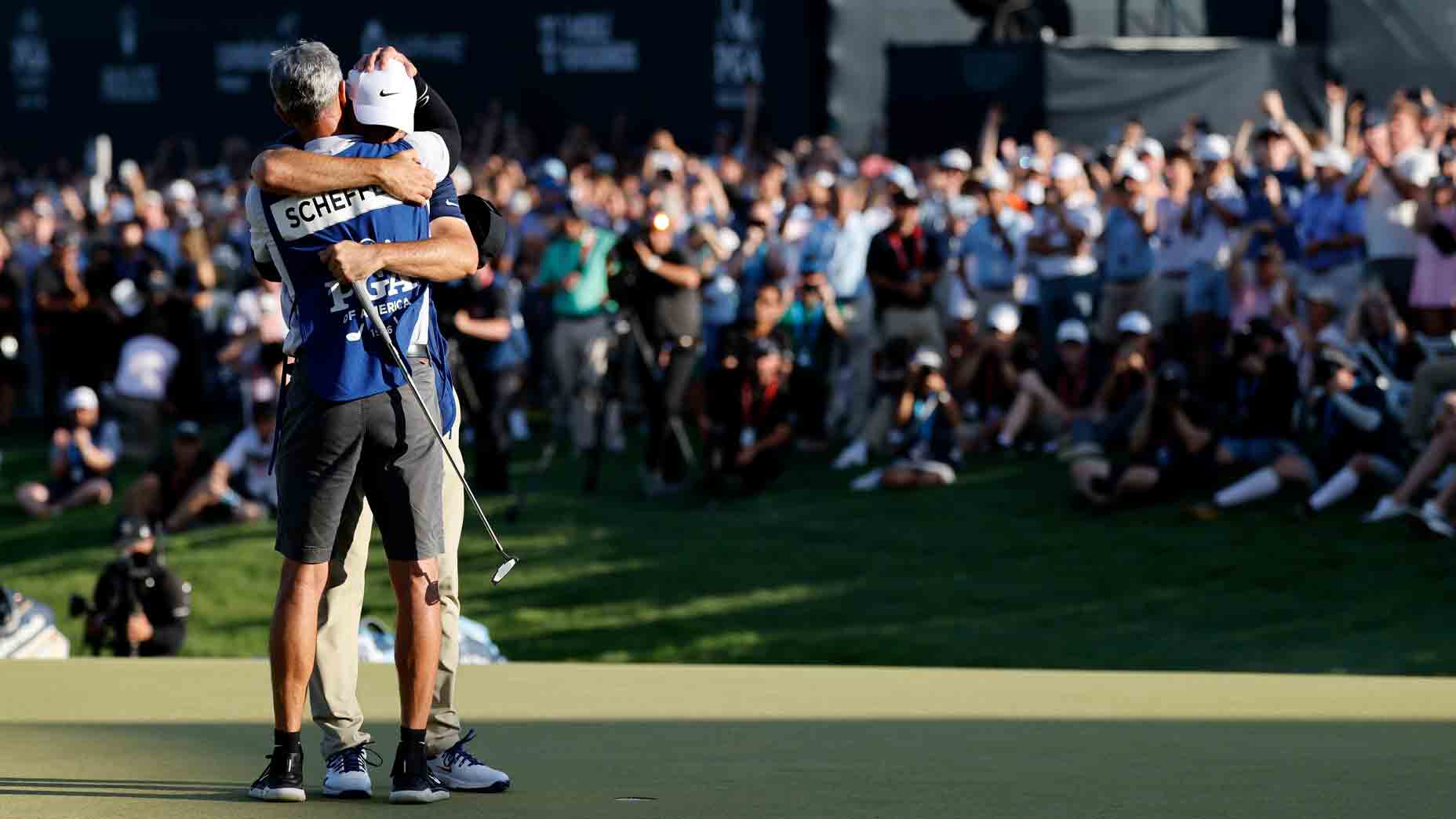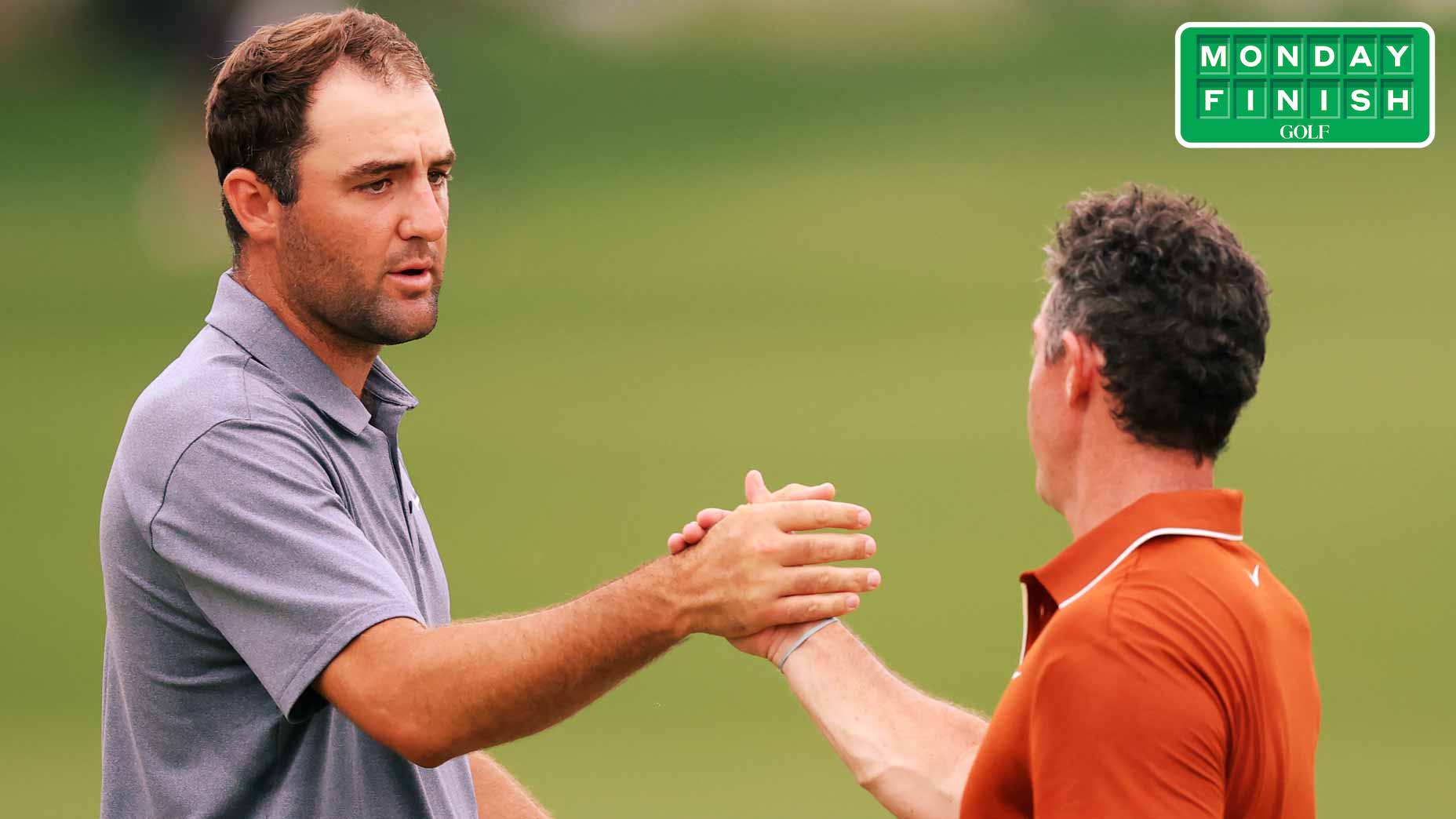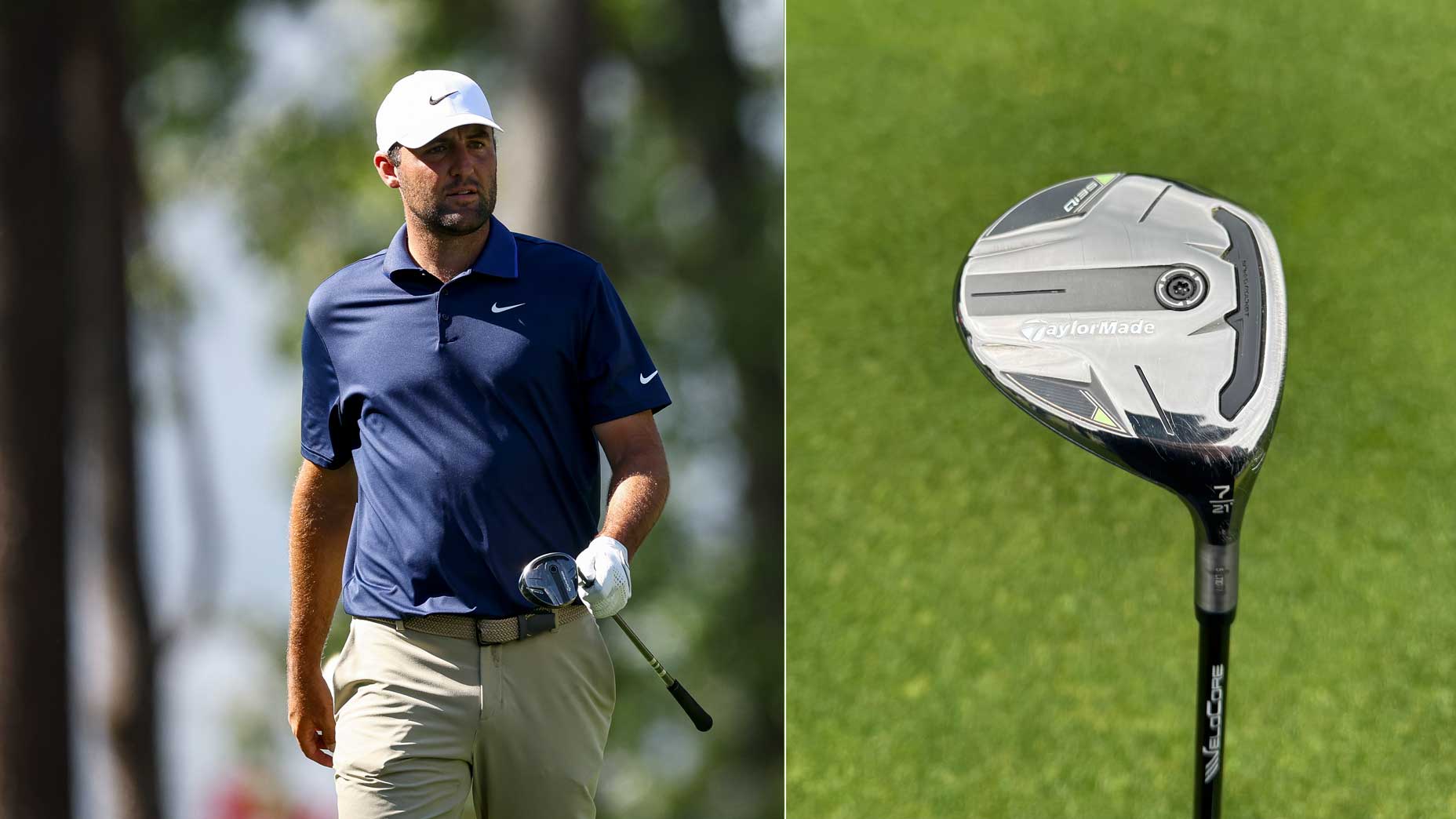“Playoffs are so fluky,” Scottie Scheffler reminded me last month, just days after he won the Masters. He was referring to the RBC Heritage playoff between Patrick Cantlay and Jordan Spieth, which he watched with his family on Easter Sunday.
The missing context? Just three months ago, Scheffler was a zero-time Tour winner, and the underdog in a playoff against, of all people, Cantlay. If you were an impatient golf fan, you changed the channel to catch the first quarter of Super Bowl LVI.
While the Rams raced out to a lead over the Bengals, Scheffler battled back against Cantlay, eventually dropping a 25-foot birdie in for the win on the third playoff hole. Was it fluky? It had to be, on some level. But what happened next was anything but an accident. Scheffler doubled, tripled and quadrupled down on that victory, winning three more times in the next two months and solidifying himself as the No. 1 player in the world … oh, and the 2022 Masters champion.
While we chatted about Spieth’s victory, Scheffler’s new prized possession — the green jacket — flapped in the wind 30 feet away, hanging from a golf cart handle at Royal Oaks Country Club, his home away from home on the northside of Dallas. We sat down on camera 30 minutes later to hash out his wins — each of which were filled with uncertainty — and to find out what’s changed for the 25-year-old now that he’s won golf’s greatest prize.
[You can watch the video of this interview, or read the transcript from it below.]
Sean Zak: All right, Scottie — it’s been a ridiculous few months. But I want you to go back to Super Bowl Sunday. You had zero career Tour wins at that point. And now you have four. How do you explain the last two and a half months when people ask you about it?
Scottie Scheffler: That’s a good question. I don’t really know how to explain it. I’ve just been playing good and just been fortunate to win a few times. People always say that, you know, once somebody wins one, the floodgates are kind of open. And I guess for me, that actually was true. And so I’ve been on a little good stretch here lately, and I’m trying to take advantage of it while I can, while I’m playing good golf.
SZ: Are you getting tired of people asking you to explain it? People like me saying, ‘What is the deal here?’
SS: Yeah, not really. I mean, I don’t know how to explain it so the answer is always the same. I’m like, I didn’t make any crazy changes to my golf game. I didn’t have a mental switch. I’m not really doing anything different than I was doing a few months ago. It just so happened that I was able to win a few tournaments.
SZ: Has all this winning changed anything in your life drastically in the last two-and-a-half months?
SS: Drastically? No. I mean, we live in the same house. We didn’t buy anything crazy. We just are living our normal lives. Everything’s been happening so fast that right when we get back home, we just try to make things as normal as possible.
SZ: I want to start with the start, which was the Phoenix Open playoff against Patrick Cantlay, a three-hole playoff. People forget that you almost didn’t make the weekend in Phoenix.
SS: I never really felt like it was in true jeopardy, but I do remember the end of the second round. I made a late bogey on 6 and all of a sudden I was like, ‘Oh crap. Now I’m one shot from the cutline.’ And then I had a 30-footer for birdie on 7 because I was finishing on No. 9 and I ran it by the hole like seven feet. I’m like, ‘What are you doing? If you miss this, now you’re on the cutline, like you need to pull together.’ And so I made that one. And then the next hole I made a 40-footer for birdie to give myself a little cushion with the cutline and then made a good par. And then Saturday started happening and I played pretty good.
SZ: Yeah, went low with a little 62 on Saturday. You eventually win in a three-hole playoff. Patrick Cantlay could have taken that tournament from you a couple different times. How does the win change your perspective on Tour? How do you think you’re perceived on Tour? Does it change the way you think people are talking about you?
SS: I mean, it may change the way that y’all would talk about me, but for me, I didn’t change any thoughts in my head or anything like that. I will say, Phoenix was one of those weird weeks. Phoenix was a week where I kept telling Teddy the first two days, like, ‘Dude, I’m playing really good and I’m not scoring at all.’ Like the first day I maybe shot one or two under and I was like, ‘That is literally the highest I could shoot today. I’m playing great.’ And so what we talked about was kind of just keep trying to hit shots, just keep playing, and then eventually things started to go well. But I mean, if it’s y’all’s perception changes of me, it’s nothing different. Going into Bay Hill, I did feel a little bit different in contention then. I took a lot of that experience from Phoenix and used it when I was at Bay Hill. I stayed really tough mentally on that golf course to to finish well there.
SZ: Yeah, so how does that feel different in your mind — that second win — because you made some ridiculous pars on Sunday. That was way more of a grind — a different golf course, different conditions. How does that feel different in your mind than the Phoenix win?
SS: What I learned from the final round in Phoenix was I think I made four bogeys, on the front nine, in the final round. And so if you would’ve told me a year ago that I could win a golf tournament from behind, bogeying four holes in the front nine — especially in Phoenix, it’s not a hard golf course, but it’s not really easy either. It’s kind of one of those middle of the road ones. I think I won at maybe 16 under. But I always thought that going into the final round, I had to play like this amazing, really great round. And I really only had a good stretch of holes in that round. I just finished really well. Outside of that, the final round I was kind of all over the place. And so for me, what I learned was I don’t have to play perfect. And so when I was hitting it poorly Sunday in Bay Hill, it was I know what I need to do and that’s just stay in it and just try and hit good shots and not overthink things. When I did make mistakes, I never really let it bother me.
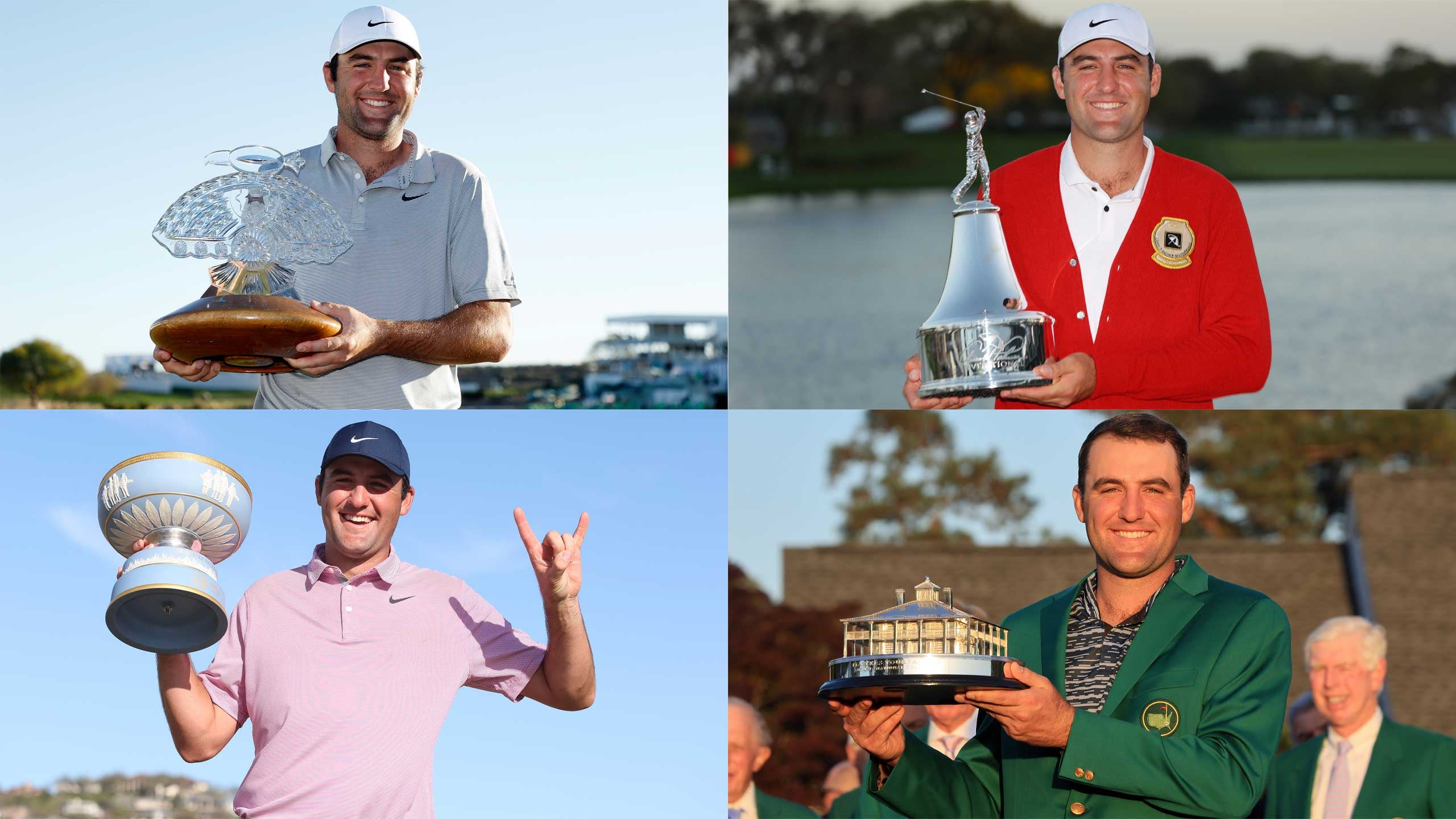
SZ: Is that somehow learned by winning when you’re young, winning in college? I think there’s a lot of people that get to that moment, back nine on Sunday at Bay Hill and they freak out when they’re not playing well. How did you know that you didn’t have to freak out?
SS: I think winning is a skill. For me, I was able to win a little bit when I was a junior and you kind of become — not used to it, but — like when you’re in that moment, I really want to win. And so letting little stuff faze me is not going to help me win a golf tournament if I’m letting my swing bug me. I kind of always go back to when I started on the Korn Ferry Tour. My first event, I was overthinking everything. I was overthinking my swing, my mechanics, all kinds of stuff, and I missed the cut in the first event. We go to the second one and I was like, ‘Screw this. I’m not thinking about this stuff anymore. This is useless. I’m going to worry about my swing, I’m just going to go out and play golf.’ And I basically just started playing like I was a kid again. Enjoying it and hitting all kinds of shots and doing things differently than other guys did. And I started rattling off some good events. I’ve just kind of stuck to that.
SZ: You’ve got a lot of practice at winning now. Are you good at celebrating your wins? Do you feel like you are good at appreciating those moments?
SS: The winning feeling is so fleeting. I win in Phoenix and it’s awesome. We had a great night Sunday, it was so much fun. Relaxed a lot Monday, kind of enjoyed having the first win. And then Tuesday came and it’s, okay, we’re in another tournament. I want to do that again, that was really fun.
And then I don’t win in L.A., you know — Joaquin [Niemann] just beat the crap out of all of us that week. Like what golf course was he playing that week, you know? — it’s just you enjoy that moment so much, but then it’s so fleeting. The next day, it’s I gotta do it again. That was awesome.
SZ: How does [your caddie] Ted Scott help you win golf tournaments?
SS: A variety of different ways. I mean, we talk about every shot from Thursday to Sunday.
SZ: But is there something he does on Sunday for you that maybe you didn’t have before or that you think is maybe unique to him that really seems to keep paying off?
SS: What’s really unique to Teddy is his personality. He’s totally unfazed. I remember one moment in Phoenix that we had, I think it was Thursday. I got this horrendous break in a bunker. I had a really easy bunker shot that would have been easy, but my ball was in like a hole. And so it went from being a cake shot to a really, really hard shot. And I somehow pulled off this amazing shot to nip it and land it on the fringe to trickle down to the hole, because I couldn’t get any height on it because I was sitting so down low in this hole. I hit this amazing shot and it lands on the fringe right where I want to and then goes into a sprinkler head and just spins around.
Instead of having a putt from a foot, I’ve got a 12-footer. And I’m freaking out like, ‘How could this happen?’ And he’s standing up on the green, literally laughing at me. And I’m sitting there looking at him like, ‘Dude, come on, man.’ But then he just snaps me out of the frustration really quickly. Most caddies I don’t think would do that. Like, they don’t have the guts to laugh at their player when something like that is happening. And, you know, he just keeps things really light. And we talk through all of our shots on the golf course. There’s pretty much never a shot that I don’t discuss with him.
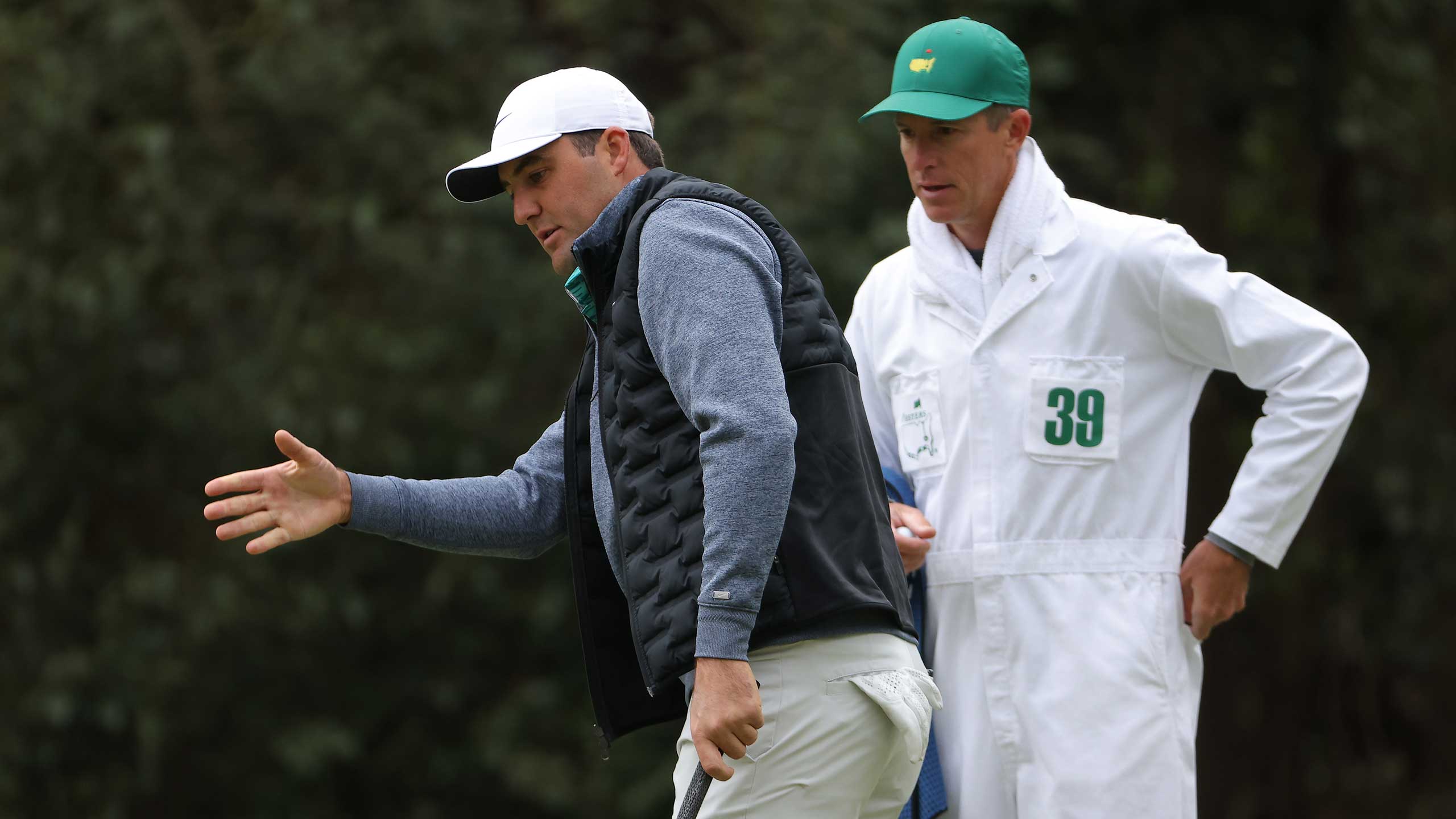
SZ: Then you move on to Austin, and you win the WGC-Match Play in the same city where you went to school. You win by beating DJ and the match play king, Kevin Kisner. Was that in some way a more affirming victory, the way you won it? How different did that one feel?
SS: It was a lot different. There was a lot more nerves surrounding that one on Sunday. It’s such a long week and the way it ended the year before, I was disappointed. [Scheffler lost to Billy Horschel in the finals in 2021.] You play seven rounds of golf and then come up a few shots short, it’s very frustrating. And I hadn’t won at the time, so that was a real punch in the gut for me. I really felt like I was going to win that golf tournament. And what better opportunity there is to win than only having to beat one guy, you know? Granted, it’s Billy who’s really good in match play. But, you know, still, I wasn’t able to get it.
SZ: And he almost got you again this year.
SS: Yeah, that was that was a fun match. It was funny. Like I said before — thinking I needed to play perfect golf — I had a really bad front nine against Billy. But I just hung in there and I ended up hitting the shots down the stretch to where I could close out the match. It’s one of those weird deals where he could have just as easily beat me that day. The chips have to fall in the right place for you. But Austin was pretty emotional.
SZ: Yeah it had to be! Your dad came out there and hugs you and says, ‘I’m more proud of who you than for your golf. You’re a wonderful young man.’ And you’re just getting a fleet of hugs in the moment. Were you getting choked up in that moment?
SS: Yeah. I would say that, the winning feeling, I always imagine having a moment like that, but you have to stay so composed for so long to win the tournament. So by the time you actually win the golf tournament, you’re kind of like still in the phase of being locked in. And then when the tournament ends, it’s kind of like, ‘Oh, I want to celebrate.’ But the same time, I’m still locked in.
Austin was really the first time where I kind of just got done. I was like, ‘This is awesome. I’m gonna enjoy this.’ Other than the Masters, there’s probably not another tournament I want to win more on the PGA Tour than Austin. I went to college there. I just dreamed of being in that field. And to win that tournament in front of everybody was amazing. And yeah, that was pretty emotional. I really, really enjoyed that one. My dad is so funny. Sometimes in those moments, he’ll make fun of me — we have a good relationship with stuff like that. When we got done he said, ‘I’m glad I didn’t say something stupid and start making fun of you. I didn’t know there’s a camera on.’ [Laughs] Yeah, that was pretty special.
SZ: You also made headlines by saying you never got this far — world No. 1 — in your dreams. What does that mean? Does it mean that you never imagined it or that you never focused on it — what was in your golf dreams?
SS: My dream always was to play on the PGA Tour, and so obviously I wanted to win tournaments. I wanted to win majors. I wanted to win the Masters. I wanted to do all these things. Where the mind goes is I want to do everything. I want to accomplish all that I can. But I never really focused on a world ranking or focused on winning this certain tournament. It was always just trying to improve. And so when I said I never got there, it’s because I never really considered world rankings. I never thought about becoming the No. 1 player in the world. I remember seeing some quotes from guys in college, when they’re young on Tour, it’s like, ‘I want to be the best player in the world.’ And for me, I was always just trying to improve. I never really considered that stuff.
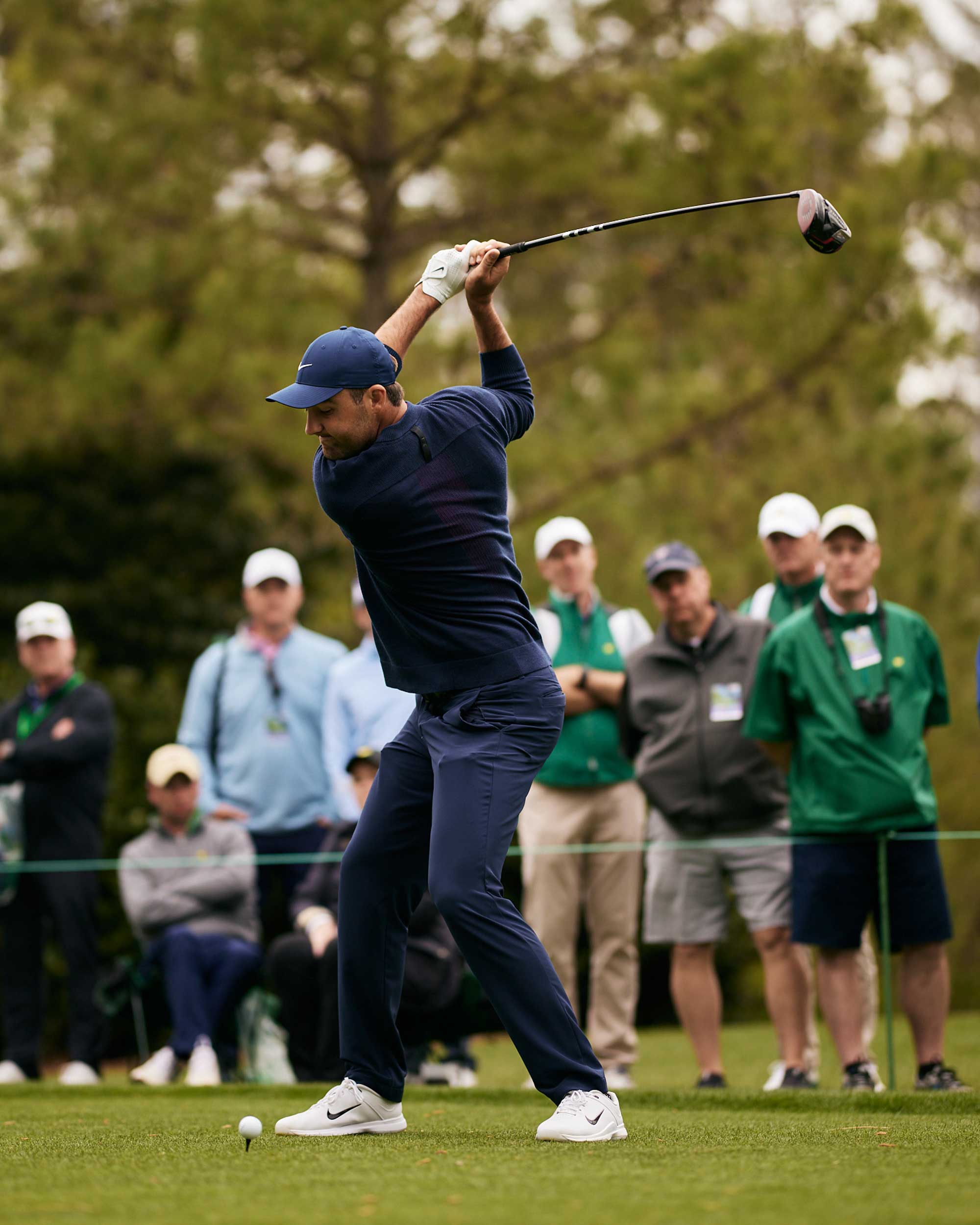
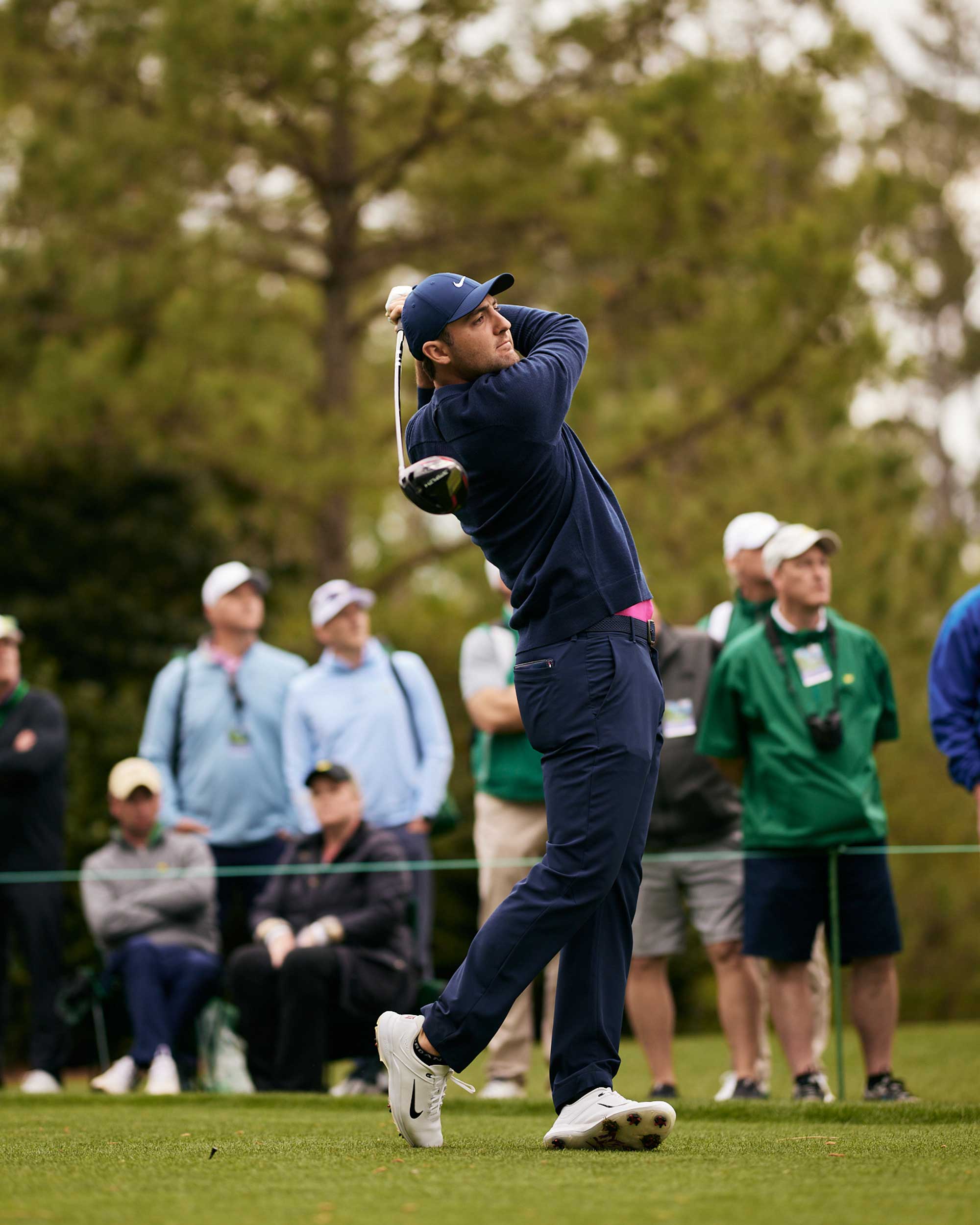
SZ: Well it’s a little dangerous to. You said the only time in your life that you’ve considered the rankings is when you were trying to qualify for WGCs. You were in that 70 to 50 range.
SS: Yeah, I’ll remember that week for a long time because we were at Riv. I think it was Collin and I were 51 and 52 in the rankings and we were both playing on Sunday. All we had to do was play decent to get into the next week. And I ended up having a weird round where I had like a bunch of birdies and a bunch of bogeys because I was playing good at the time, but I wasted so much energy considering the rankings. Like obviously you want to get into the WGC. It was my first WGC. You get into the top 50 in the world, you get to the Masters, you get into all these tournaments, and it’s kind of your key to that second level of being on the PGA Tour. And I just wasted so much energy considering it, that after the week I was like, ‘Why? Why was I so consumed with that when all you have to do is just try and play good golf?’
SZ: It’s a dangerous game.
SS: Very.
SZ: Do you read about yourself? Are you interested in any of the ways in which you’re covered?
SS: Not really. For the most part, I love what the media does for us, giving us exposure and a platform. I really do. But at the same time, some people in the media may have a habit of building you up to a point, and then all of a sudden more stuff you read becomes negative. Like there always has to be something to write about. And so for me, I’m not going to get consumed in stuff, whether it’s really good or negative, because if it’s really good, then all of a sudden I’m going to start thinking really highly of myself and that’s not going to benefit me at all. And if I start reading negative stuff, then I’m going to start having a negative viewpoint of myself. And so I’d rather just stay kind of in the middle.
SZ: I think Even Keeled Scottie might be your new nickname. Alright — Masters questions. It’s the biggest of the four wins. Saturday night of the Masters. I believe you said you were headed home to watch Season 4 of The Office.
SS: Yep.
SZ: Have you finished Season 4 of The Office?
SS: No, we haven’t. We slowed down. What did we do? I can’t remember what we did [the week after the Masters]. It was a relaxing week at home for sure. I spent a lot of time in the backyard. We’re in the middle of Season 4 now, but we also watch Yellowstone. So we’ve been kind of cranking through that as well. But we did watch two episodes of The Office that Saturday night. I was a man of my word.
SZ: What character from The Office do you most closely align with?
SS: I really can’t choose. It’s fun watching it from the beginning again because the characters really develop. And so you kind of get to know everybody differently. And as the seasons go on, the storylines for each character, they have to keep doing something. And so as a show goes on, you just get introduced to more and more of each character. And so it’s hard to not love Steve Carell. And then, Jim and Dwight are just hilarious.
SZ: Why is that the show for you and your wife right now?
SS: Well, it was my favorite show I think, since I discovered Netflix and I saw that it was on there because I wasn’t old enough to watch it when I coming out on TV. And so I wasn’t a huge fan. I love to laugh and I love funny shows and funny movies. And so that’s something I gravitate towards.
SZ: Can you explain Sunday morning of Masters week. You’re at home waking up, have to deal with the time it takes to get to get to your 3 p.m. tee time. What’s going through your head and what made you so emotional?
SS: There’s so much that goes on with that golf tournament because it’s the Masters. It’s the golf tournament. It’s the one that moves the needle for golf. It’s what everybody pays attention to. And you get the green jacket and you get to come back to Augusta for life. And there’s so much that surrounds that tournament. And so there’s just a lot of emotion there, because if I do get the job done, it’s this amazing deal. But then there’s so much other stuff that goes on. Like in my life, off the golf course, can change to where maybe more people are recognizing me. You’re more in the spotlight and there’s so much more that’s attached to that golf tournament than just playing it. And I want to win it really badly. And what better chance than with a three-shot lead on Sunday. And to where you know, a group of us had kind of extended from the rest of the pack. There was really only a handful of guys that could have won. And so, once again, what better opportunity to win than the one that I had? How much better can it get? And so for it to be my first one. There was just lot going on.
SZ: It sounds like you couldn’t not think about your future?
SS: Yeah. I mean, what tournament would I want to win more than the Masters? And what better opportunity? So I think a lot of that weighed on me just because I had already done it Saturday morning, where there’s a lot of stress, but there’s not as much because the finality is not attached to it. Sunday morning was a long morning, but once I got to the golf course, it was more relaxed. But that’s the stuff that’s easier. Playing golf is easier than thinking about playing golf.
SZ: The third hole — it’s probably the most iconic shot hit on the third hole in Masters history. I think we can comfortably say that. Did you hit a perfect golf shot or did you get lucky?
SS: I think hitting it actually going in, there’s a lot of luck attached to that because it’s not like I was up there [walking around] saying ’It’s six inches out right,’ you know, figuring out the science of where the spot is below it. It was kind of just a feel thing where I’m just trying to get the ball up there around the hole and it just happens to go in.
You see you see guys like Jordan [Spieth] holing out all the time. That’s not because he’s only thinking about making the chip. He just happens to always be going around the hole. It’s not just blind luck that he chips in all the time. When the ball is always approaching the hole at the right speed, it’s going to go in more often. And so all I’m trying to do is just kind of feed the ball towards the hole and then, you know, I’m just fortunate to see it go in.
SZ: Three and a half-ish hours later, it’s becoming reality. When on the back nine did it start to hit you that you were going to get it done?
SS: I would say probably after 15. Cameron [Smith] hit it in the water on 12. I made a really, really good par there. That was one of my best up and downs of the day. And then parred 13, birdied 14 and then 15 is a scary hole. there’s so much bad stuff that can happen there. The back nine [at Augusta National] is so special because you can play great and you can just completely implode.
SZ: And now, No. 15 plays even harder.
SS: Yeah, tee back. I went for the green in two because the wedge shot is so hard. You’re hitting on a downslope, into the grain. If you get a bad lie, it’s hard to make really good contact. And after I hit the second shot over and I had another nice up and down, I had a five-shot lead and I was like, ‘Okay, now I really feel like it’s my tournament to win and all I got to do is close it out.’
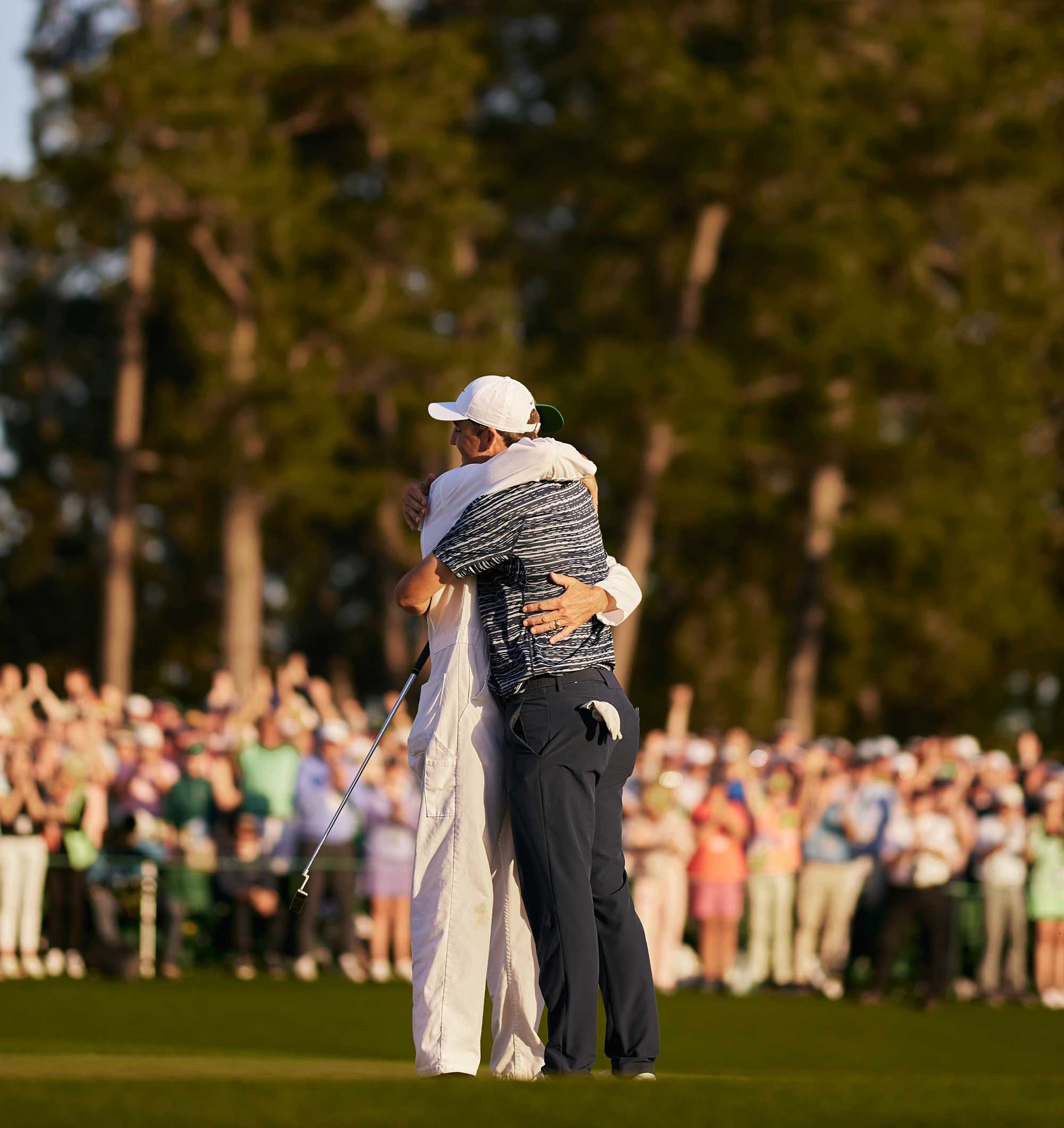
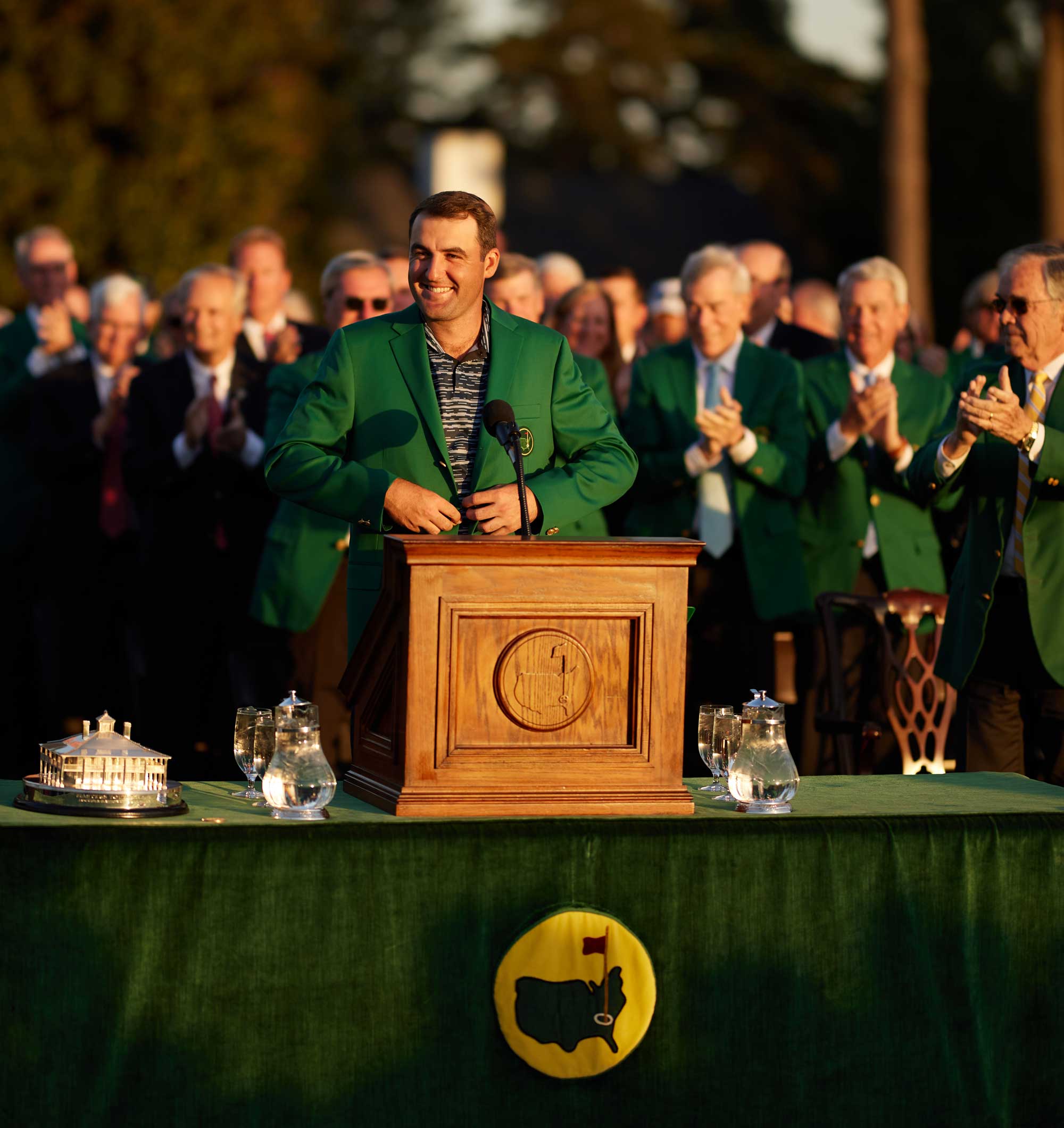
Made a good par at 16 and I was kind of relaxed like — I can make two doubles on 17 and 18, you know — I relaxed for a split second on 17 and hit a horrible golf shot. I was mad. Snap back into it, get back to playing. I made a great par, and I let myself enjoy it when we started walking up the 18th. And that’s why people say ‘Don’t get ahead of yourself. One shot at a time.’ All those cliches, they reign true, because I had one of those moments. ‘I accomplished it. I can get the ball in the hole in like six or seven shots.’
SZ: Can we laugh about the four-putt?
SS: Yeah I mean I was laughing about it when it happened! [Laughs] I told Meredith after the round, we were walking off. I was like, ‘Man, I’m actually kind of glad I four-putted because if I would have made the second putt or made the first one, I would have been an emotional wreck.’ And so being able to actually laugh at that—
SZ: Wait, why do you think that is?
SS: You got to be able to laugh at yourself.
SZ: But why would you think you would have been emotional if you made a 3 there? Is it just happening quickly?
SS: I think just because I would have gone from being so in the zone — like everybody’s cheering, my family is there, Meredith’s family’s there — to where it’s like it was in Austin. Suddenly, Oh my gosh. I just won the Masters. This is insane. I would have just been a wreck. But since I four-putted you’re able to kind of laugh at it like that was really funny. Who has ever four-putted to win the Masters? [Laughs]
SZ: Scottie Scheffler has. This whole run has been incredible. But has there been any part of it that’s been hard for you? What’s been the hardest part of of this stretch when you make everything look easy?
SS: I wouldn’t say that I’ve been making it look very easy. But, you know, that’s a good question. I think energy levels are a little low, right now. I’m glad I have a little break here. But, you know, Meredith and I have really just been enjoying some time at home. I’ve always kept a pretty low profile around here and that’s definitely not going to change.
SZ: What does that low profile look like for you?
SS: Like the week after the Masters I went to Home Depot and got some lawn equipment and just cleaned the backyard for four days straight. Because I love being outside, but I wasn’t going to come practice or do anything like that. And so for me, I just kind of hung out in the backyard and accomplished something. You know, it’s like mowing the grass or doing your laundry, like you feel accomplished. When I clean our pool and like, leaf-blow the backyard and it looks nice, I’m like, ‘Yes, I accomplished something today, I didn’t just totally sit on my butt.’
SZ: Last question: you said that you felt like you weren’t being noticed after the first three wins as much. Do you feel like you’re being noticed a little bit more now in public? Does it feel like people are aware of who Scottie Scheffler is?
SS: Not really. I mean, every now and then. Meredith and I — there’s a few places we like to eat around our house. They’re like two minutes from our house. And so when we come back from a tournament, we don’t have groceries or anything, so we can’t cook. So we go out and get breakfast and coffee and all that stuff. And we went to our usual spot and it was like alarming how many people were coming up. But it was because it just happened like 12 hours prior. People were surprised that we were back.
SZ: Yeah, I would be!
SS: Yeah. And so it was kind of one of those funny deals where Meredith and I got home were like, ‘Man, that was a lot. Like, that was weird.’ And then we did it again Tuesday and one person said hello. [Laughs] So it was right back to normal for us.
